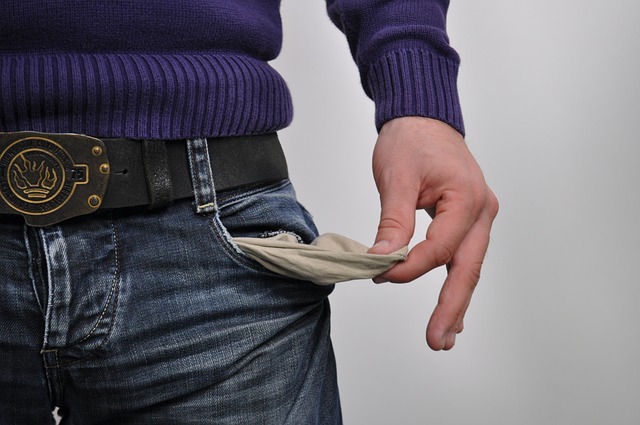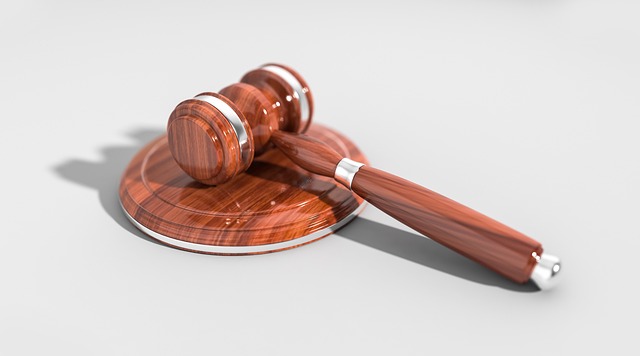

- aditya mishra
- December 15, 2022
- 0 Comment
Cheque Bounce in India
India has a unique status regarding cheque bounce cases, with legislation laid out in Section 138 of the Negotiable Instruments Act, 1881 (“NI Act“). Cheque bounce is a criminal offense in India and is punishable by imprisonment and fines. The cheque bounce meaning involves a cheque being presented to a bank for payment, but the account doesn’t have sufficient funds or the cheque is not validly drawn. Due to this, the payee is unable to receive their expected amount.
If a person fails to pay when a cheque bounce occurs and the cheque was written on their account, they may be subject to legal action and charged with cheque bounce charges. In addition, they may be subject to additional fees. In the event that you are given a notification that your cheque has bounced in India, it is imperative that you take prompt action in order to avoid incurring any penalties. Failure to do so may result in the cheque being returned to the sender.
Reasons for Cheque Bounce

There are several possible reasons why a cheque may bounce in India. Some of the most common cheque bounce reasons include:
- Insufficient funds in the account: If the account holder does not have enough money in their account to cover the amount of the cheque, it will bounce.
- Incorrect account information: If the cheque has been written with incorrect account information, it will not be able to be processed and will bounce.
- Closure of bank account: If the bank account associated with the cheque has been closed, the cheque will bounce.
- Alterations to the cheque: If the cheque has been altered in any way, it may be rejected by the bank and bounce.
- Expiration of the cheque: Cheques in India are generally valid for three months from the date of issue. If the cheque is not deposited within this time frame, it will bounce.
- Non-acceptance by the bank: In some cases, a bank may simply choose not to accept a cheque for various reasons, causing it to bounce.
It’s important to be aware of these potential cheque bounce reasons in order to avoid issues when writing or accepting cheques in India.
Cheque Bounce Meaning: Section 138 and Section 141
Section 138 of the NI Act is an important law regarding cheque bounce cases in India. This law stipulates that if a cheque has been presented and dishonored due to insufficient funds or invalidly drawn, then the person issuing the cheque may be liable to pay twice the amount of the cheque as a fine. Also, they may face imprisonment up to two years, or both.
Furthermore, the payee is entitled to recover the amount of the dishonored cheque from the accused along with interest and compensation. In the event of a cheque bounce in India, it is important to take prompt action to avoid any penalties and seek legal advice if necessary. The law provides protections for payees involved in cheque bounce cases and is an important part of India’s cheque bounce law.
Section 141 of the NI Act is a law that applies to companies in India who have issued a cheque that has been dishonored due to insufficient funds and/or invalidly drawn. According to this law, if a company is found to be guilty of such an offence, they may be punished by imprisonment between three months to one year or/and fines which may extend up to twice the amount of the cheque.
Furthermore, the payee is entitled to recover the amount of the dishonored cheque from the accused along with interest and compensation. It is important to note that if the company fails to pay the required amount within 15 days of receiving the legal notice, the punishment may be harsher.
What to do if the cheque you received bounces?
You have the ability to take legal action against the person who caused your cheque to be returned unpaid in India by using the provisions of Section 138 of the NI Act. It is essential to have a conversation with the person in question in order to make an effort to arrive at a satisfactory resolution prior to taking the action in question. Sending a legal notice to the accused is another important requirement that must be met before the case can be taken to court.
This notice helps ensure that the accused has been adequately informed of the problem at hand and has had the opportunity to acknowledge their wrongdoing and make amends for their actions.
When drafting a legal notice, it is essential to include the full particulars of the case involving the bounced cheque, including the amount of money that is owed by the accused, the amount of time that has been allotted for them to make payment, as well as any other pertinent information that may be of assistance to your case.
In addition to this, it is essential to keep a copy of the notice for your own future reference. In the event that the accused does not pay after a cheque has been returned as unpaid, they may be subject to legal action and charged with cheque bounce charges.
If you have taken the steps of communicating with the person responsible for causing your cheque to bounce and sending a legal notice, and the accused has still not resolved the issue, you may need to consider taking legal action. In India, you can take legal action against the person responsible for causing your cheque to be returned unpaid by using the provisions of Section 138 of the Negotiable Instruments Act.
Before taking this step, it is important to consult with a lawyer who can advise you on your specific legal situation and help you understand the potential consequences of pursuing legal action. Your lawyer can also represent you in court and help you build a strong case to support your claims.
In order to file a complaint in court, you will need to provide evidence to support your case, including copies of the bounced cheque, any legal notices or complaints filed, and any other relevant documents. It is important to keep thorough records of all communication and documentation related to the cheque bounce case, as this can be crucial in supporting your claims in court.
If the accused is found guilty of cheque bounce charges, they may be subject to penalties such as fines and imprisonment. It is important to understand the legal process and potential consequences of pursuing legal action in a cheque bounce case in India.
When can you take legal action for a dishonored cheque?
If a cheque bounces, the payee has the option of sending a legal notice to the drawer under Section 138 of the NI Act, requesting payment of the cheque amount. If the drawer does not comply with the notice, the payee can take legal action against them. To initiate legal action and file a suit in court, the following conditions must be satisfied:
- The cheque must be presented within three months of its issuance.
- The bank must reject the cheque due to insufficient funds.
- The payee must make a demand for payment of the cheque amount by issuing a written cheque bounce notice to the drawer by post.
- The drawer must fail to pay the amount within fifteen days of receiving the notice.
If these conditions are met, legal proceedings can be started in court within thirty days of the expiration of the fifteen-day payment period. The suit will be filed under Section 138 of the NI Act, in the court of the city where the cheque was presented for payment.
What is the punishment for cheque bounce in India?
In the event that a person is found guilty in a case involving a bounced cheque in India, they may be subject to a wide range of punishments. These punishments can range from fines to jail time. The payee has the legal right to demand that the accused pay back the amount of the dishonored cheque, in addition to interest and compensation, in accordance with Section 138 of the NI Act.
This legal right is granted to the payee by the government. Depending on the seriousness of the alleged crime, the individual who is being accused may also be subject to additional penalties, such as a prison sentence that lasts between six months and two years and/or fines that can reach up to twice the amount of the cheque.
The court has the discretion to order the defendant to pay for additional legal fees, but this will depend on the nature and severity of the crime. Individuals who are found guilty of cases involving bounced cheques may also be required to pay a fee for the disclosure of their Permanent Account Number (PAN), in addition to any costs that are associated with a summons.
In addition, individuals who are found guilty of cases involving bounced cheques may also be required to pay any costs that are associated with a summons.
What to do if you are facing a cheque bounce case in India?

If you are in India and facing a cheque bounce case, it is important to take prompt action in order to avoid any penalties. You should reach out to the payee and communicate with them in order to try and reach an amicable solution.
If this does not work, you may need to consider filing a formal complaint in court and sending a legal notice. The legal notice must include all the relevant details of the cheque bounce case:
- The amount owed by the accused
- The prescribed time for them to make payment
- Any other information that can help your case as per Section 138 of the NI Act
Before being present in court, consulting with a lawyer who can advise you on your specific legal situation is advised. Furthermore, you should familiarize yourself with the punishments for cheque bounce cases in India and be aware of any potential cheque bounce penalties that may be imposed.
In addition to these steps, it is also a good idea to keep a record of all communication and documentation related to the cheque bounce case, as this can be helpful in court. This may include copies of the bounced cheque, any legal notices or complaints filed, and any other relevant documents. By taking these steps and working with a lawyer, you can increase your chances of a successful outcome in your cheque bounce case.
Notable Cheque Bounce Cases in India
In this case, Madras High Court held that Section 138 of the NI Act applies to cheque bounce cases in India. The court ruled that the drawer of a dishonored cheque can be held accountable for the payment and any resulting damages, providing legal protection to those affected by cheque bounce. The court also held that the materials on record necessary for the prosecution of a cheque bounce case must meet certain criteria.
The Madras High Court emphasized the need to follow procedures laid out in Section 138 of the NI Act for cheque bounce cases. In addition to proving that the drawer of a dishonored cheque can be held legally responsible, prosecution must also provide that the cheque was presented to the drawee bank within a reasonable time of its issuance.
Furthermore, a written demand of payment must be sent to the drawer prior to the filing of the case. These requirements are necessary to ensure a successful prosecution of a cheque bounce case in India.
This case is an important landmark case in India related to cheque bounce. In this case, the accused had issued a cheque and failed to pay the amount stated in it. The court held that according to Section 138 of the NI Act, the accused was liable to pay twice the amount of the cheque as a fine or face imprisonment up to two years, or both.
Furthermore, the payee was entitled to recover the amount of the dishonored cheque from the accused along with interest and compensation. The court also noted that the accused had failed to pay the required amount within 15 days of receiving the legal notice, which made them liable for harsher penalties.
Importance of Cheque Bounce Law in India
In conclusion, it is essential to comprehend and be aware of the implications of Section 138 of the NI Act when it comes to the problem of bounced checks in India. The law makes it abundantly clear that the person whose check was dishonored can be held legally liable for the payment as well as any damages that result from the payment.
This indicates that individuals who write bad cheques have the potential to be held legally responsible for their actions in a legal setting. Not only does this act as a deterrent against cheques being returned unpaid in India, but it also provides legal protection to those who would otherwise be negatively affected by such an occurrence.
We sincerely hope that you found this article to be enlightening and helpful in gaining a better understanding of the law in India that applies to cheques that have been returned as unpaid.
To send a legal notice in a cheque bounce case without leaving your home, click here!



Leave a Reply